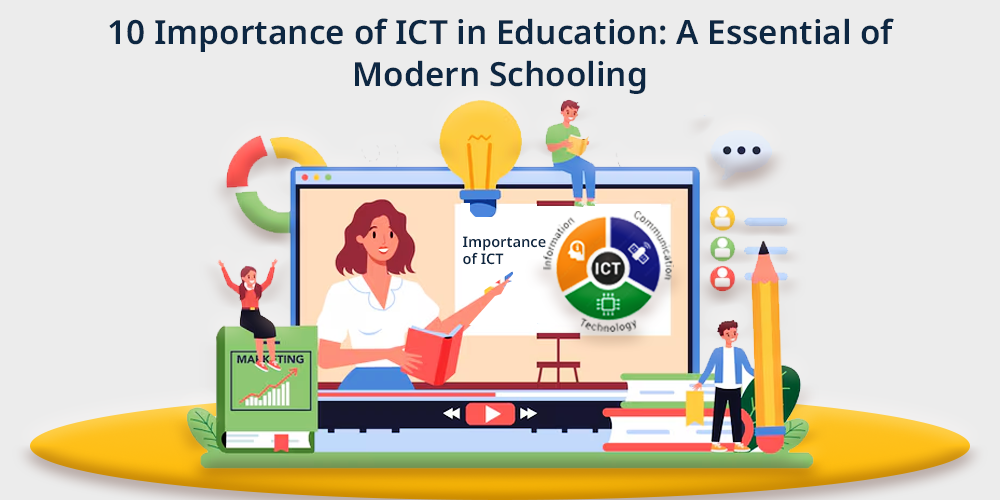
Do you know how technology is playing an integral role in education ?
Technology is an important part of education and gives students a healthy and successful way to learn.
The incorporation of ICT in education is used to improve the teaching-learning process, provide an interactive teaching-learning experience, and make education more accessible and engaging.
In a technological era such as the twenty-first century, technical knowledge is fundamental to survival.
With the increase in technological development, digital literacy has become an essential part of different educational institutions.
As ICT is now applied to every population on the planet, the citizens of a new society have transformed into consumers. ICT is used for development growth and communication from homes to workplaces schools to colleges.
ICT(Information Communication Technology) in education has become a part of life in the present world. ICT also focuses on Inclusive education that will enhance the learning opportunities of students from different backgrounds.
ICT is very important to meet the demands of the 21st century because it improves students’ learning capacities and facilitates effective and efficient teaching by faculty and instructors.
Contents
What is Information and Communication Technology?
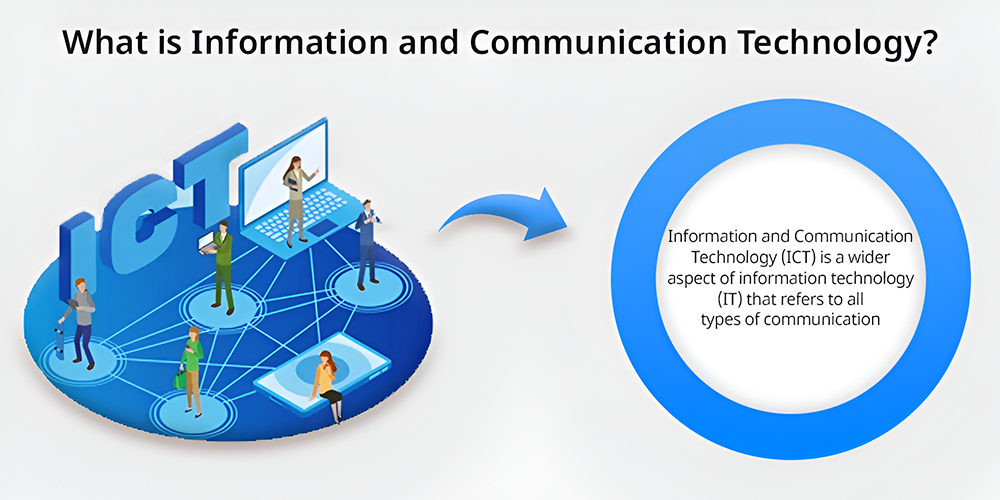
The incorporation of ICT in education is used to improve the teaching-learning process that refers to all types of communication such as telephone, mobile phone, radio, television, internet, satellite, wireless network, social conferencing and so on.
ICT has become an important feature of all educational institutions. Digitalization has elicited a huge change in the education system.
ICT facilitates traditional education and transforms the teaching-learning process either via the use of offline facilities or the implementation of online education .
For eg. The main aim of the 21k school is to utilise the concept of Information and Communication Technology to provide high-quality education through the online school.
Technical aspects such as 3d animation, virtual lab, etc are used in 21K schools to enhance the educational experience.
Top 10 Importance of ICT in Education
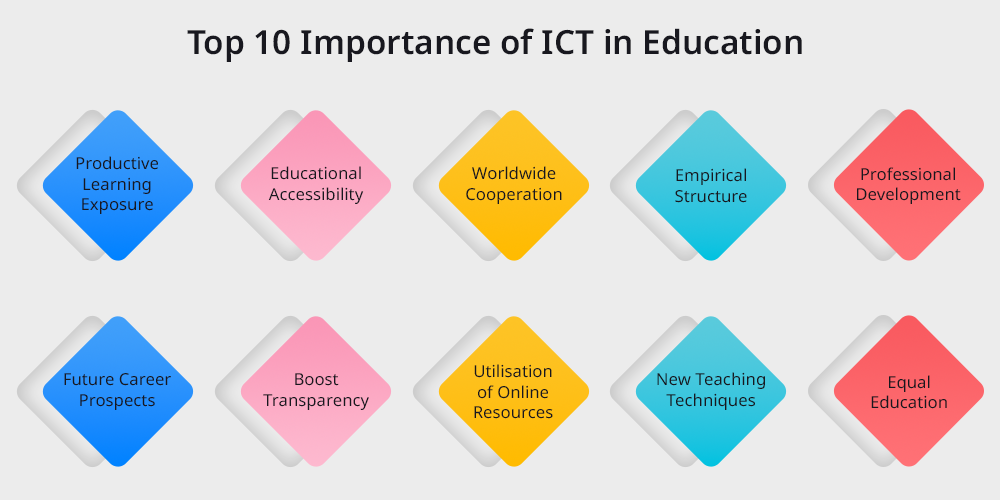
ICT can transform the educational system and promote world communication crossing boundaries.
ICT will break the one-room limit and will enhance the skills they need to survive in the twenty-first century. The advantages of ICT in education plays an integral role in developing the society.
ICT in Education is focused on Schools and Educational Institutes as there can be so much change in the Education system with the use of Information technology.
Integration of ICT in the classrooms is an academic choice of the teacher, and should always include collaboration and deliberate planning. Here you can find the top 10 importance of ICT:
1. Productive Learning Exposure:
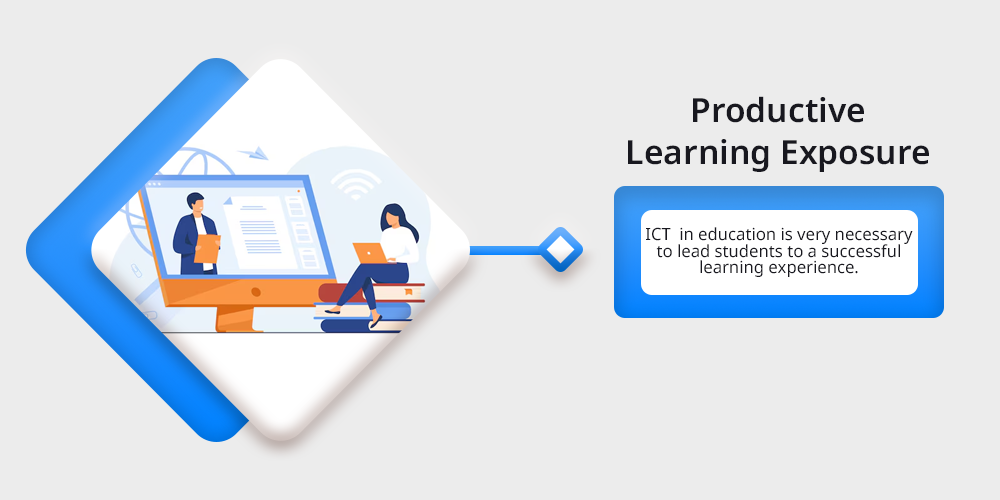
ICT in education is very necessary to lead students to a successful learning experience.
The use of audiovisual learning strategies leads the students to be more active in class activities, thus improving the student’s educational experience.
ICT in education supplies the educational materials that are required by the modern developing world for the skills demanded and carrying out the method.
2. Educational Accessibility:
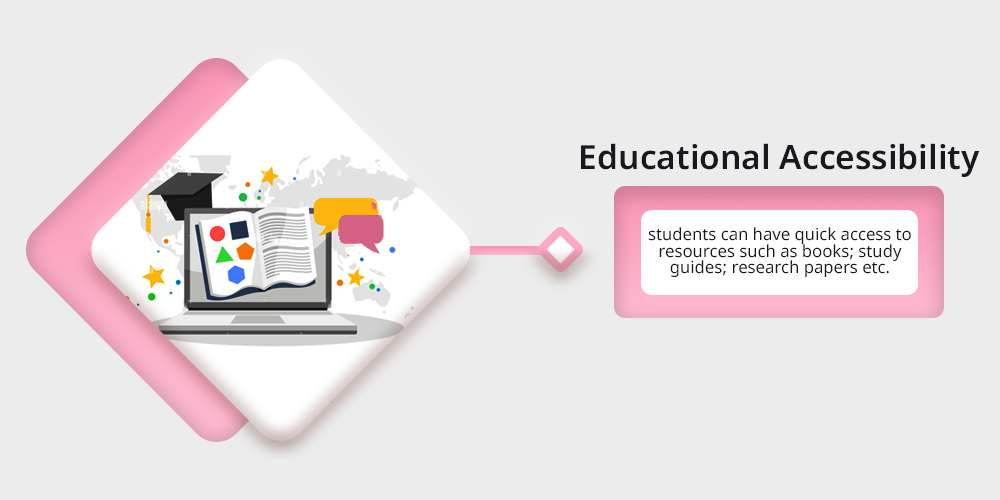
By integrating ICT in the classroom, students can have quick access to resources such as books; study guides; research papers etc. as educational resources.
In addition, rural children can access high-quality instruction study guides and learning resources simply by accessing online platforms and channels.
3. Worldwide Cooperation:
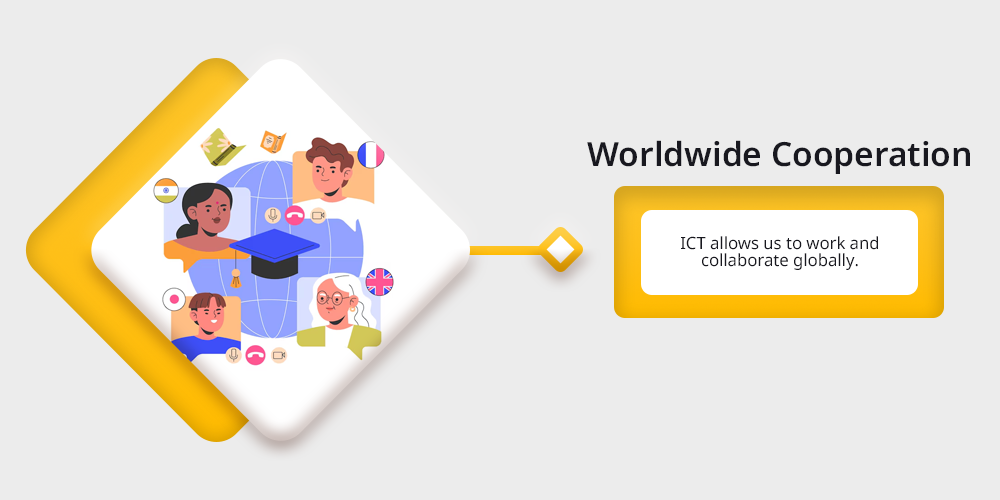
ICT allows us to work and collaborate globally. Teachers and students can connect across every geographic barrier.
As the world is connected, our interlinked cultural diversity and skills can be either promoted or learned.
4. Empirical Structure:
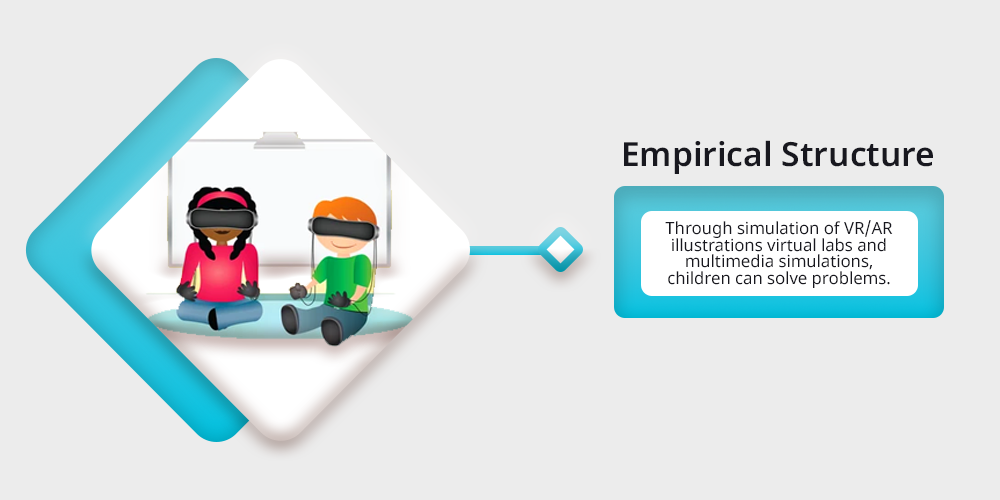
ICT in education reduces the gap between theory and practical education. ICT allows students to interact and participate in the real sense by applying ideas to actual sessions.
Through simulation of VR/AR illustrations virtual labs and multimedia simulations, children can solve problems.
5. Professional Development:
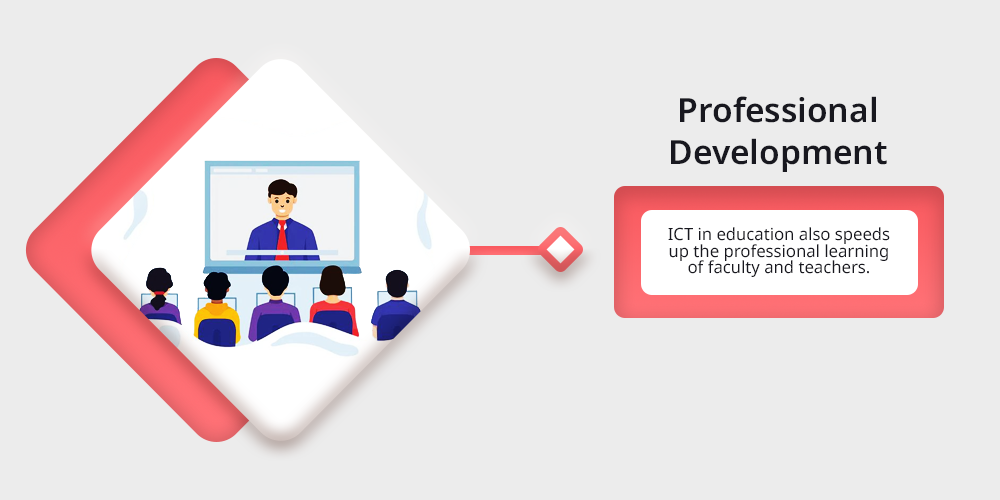
ICT in education also speeds up the professional learning of faculty and teachers.
ICT helps the instructors to be updated on the latest technology trends and changes that help them with the right knowledge of webinars, online courses, and multimedia collaboration.
By using ICT teachers can use the technology in education not only with practical knowledge but with professional knowledge.
6. Future Career Prospects:

ICT in education can empower students to adapt to the hard demands of the contemporary workplace, and enable them for a future better workforce.
Employment opportunities for future students with digital literacy coding literacy information technology items knowledge and familiarity
7. Boost Transparency:
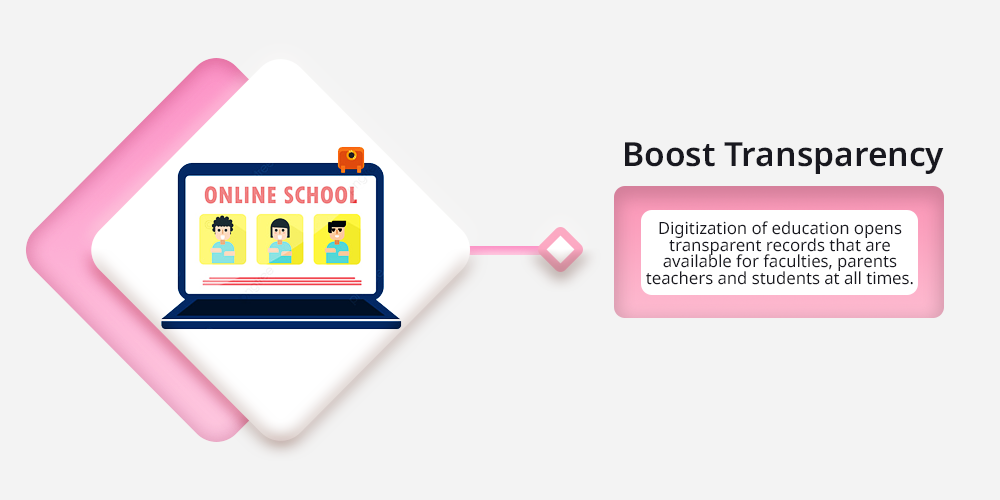
ICT education opens up an educational open system. Digitization of education opens transparent records that are available for faculties, parents teachers and students at all times.
This allows you to cross-reference any physical symptoms and ensures the data is correct.
8. Utilisation of Online Resources:
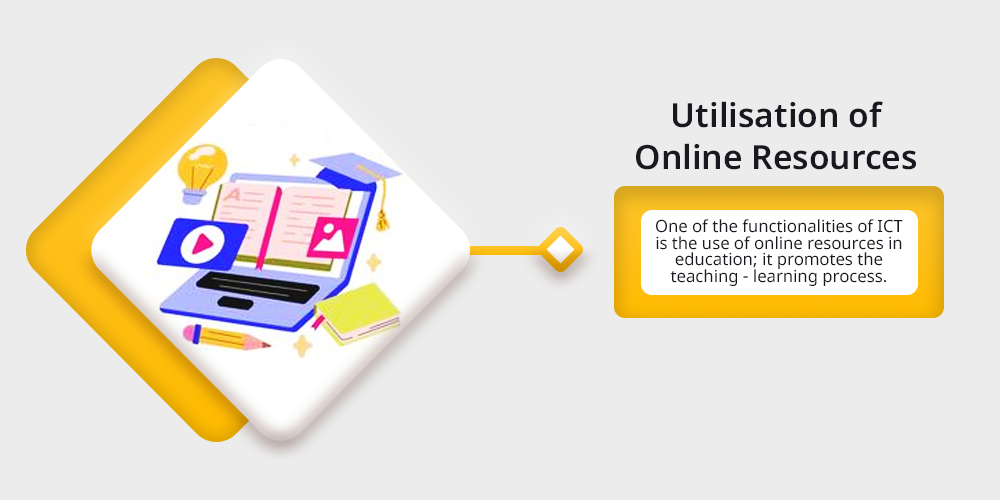
One of the functionalities of ICT is the use of online resources in education; it promotes the teaching-learning process.
The advantages of online learning are an essential part of enhancing access to education in rural areas.
Implementing digital tools such as digital whiteboards, Learning Management Systems (LMS), e-books, educational applications online teaching tools etc. are used for enhancing ICT in schools and setting up digital classrooms .
9. New Teaching Techniques:
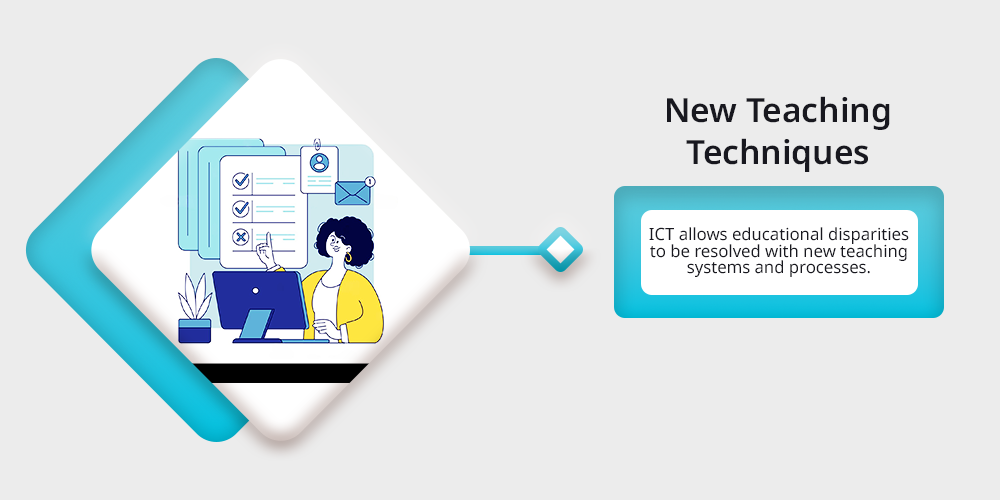
ICT allows educational disparities to be resolved with new teaching systems and processes. ICT helps the children to learn in an assistive way while performing learning activities.
ICT can be used as a tool, by which students have access to track their progress academically and thus become active participants within the educational process.
10. Equal Education:
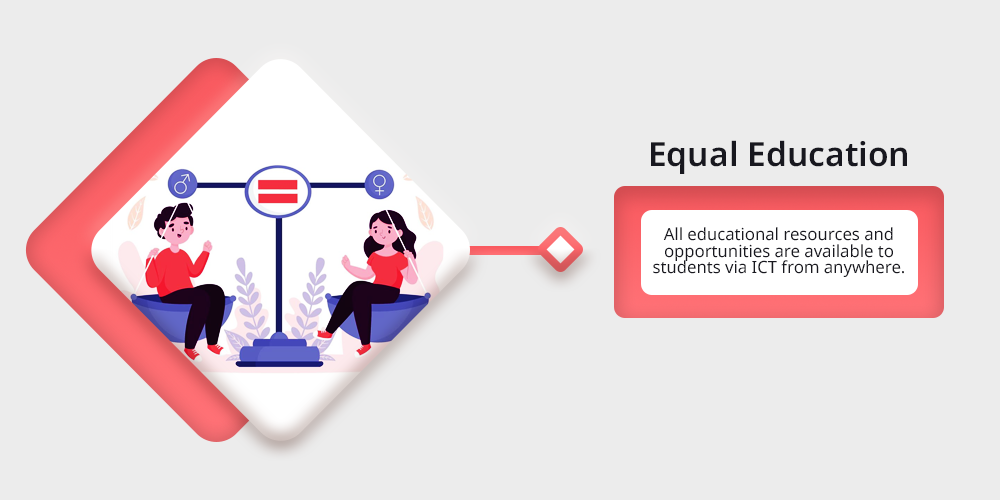
All educational resources and opportunities are available to students via ICT from anywhere.
ICT education supports distance learning and can be of use to students who are not able to physically attend traditional classes, or have physical disabilities.
Explore importance of ict in special needs education .
Conclusion
Information and communication technology (ICT) — a key element of education in the 21st century in india .
Thus it helps to provide some sort of overview of the educational process and to make it more effective, available, and approachable for all students regardless of their background.
ICT is the connection between students theoretical learning and their professional development , an international collaboration platform.
International Communication Technology gives students the necessary digital skills and tools for future career growth.
ICT offers the convenience of education and equality for all.
ICT uptake in the education sector will enable the inhabitants of that nation to grow a knowledgeable and adaptable populace capable of adapting to quick changes.
